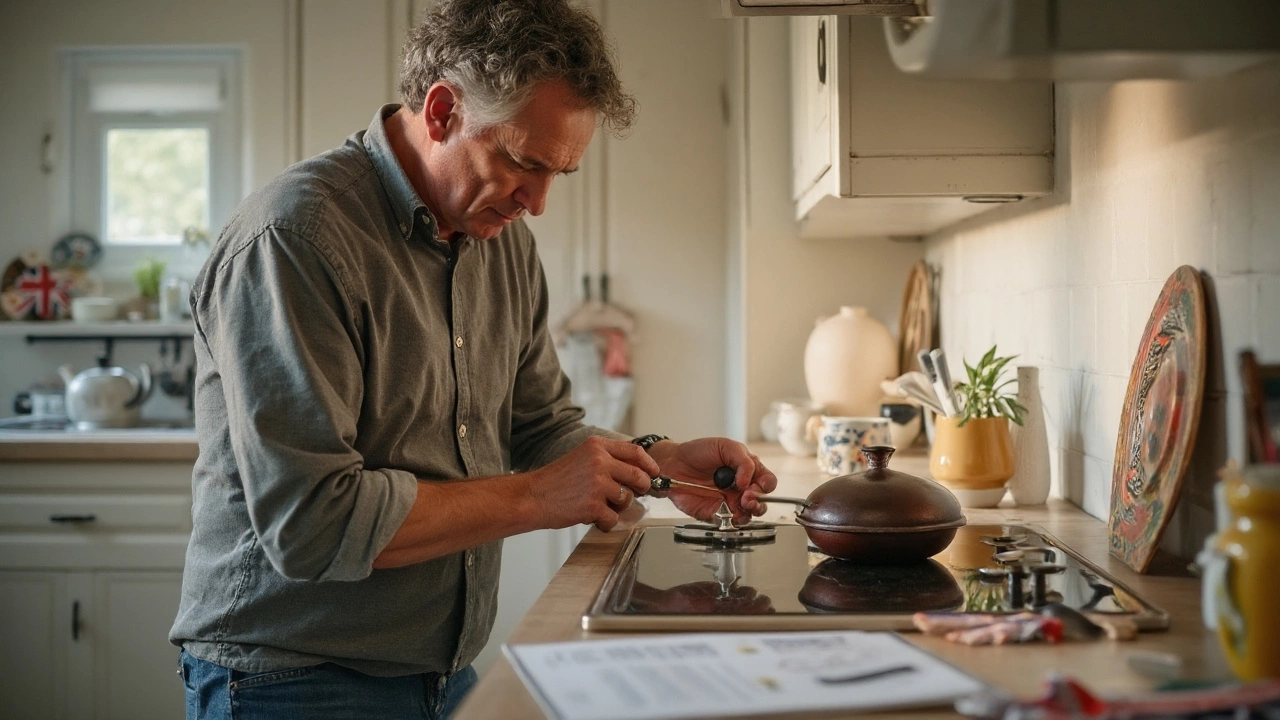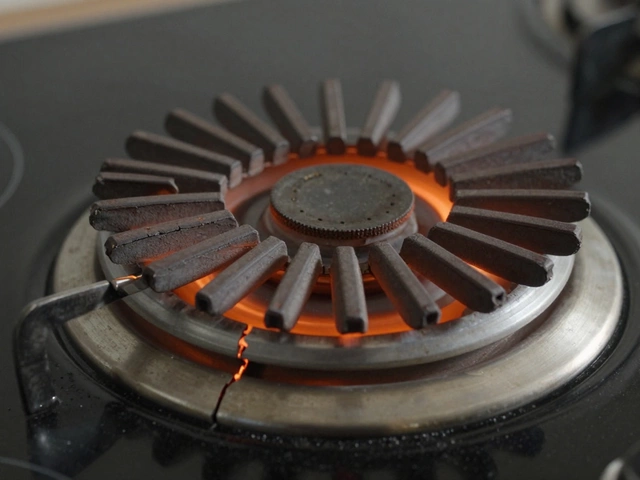If your electric hob suddenly stops heating, it’s usually the element that’s gone bad. You don’t have to wait for a technician – a fresh element can be swapped in under an hour and save you a hefty bill. In this guide we’ll show you how to spot a failing element, what tools you’ll need, and the exact steps to replace it safely.
First, make sure the power is on and the hob is set to the right zone. If the burner stays cold while the others work, that’s a red flag. You might also notice a faint burning smell, a flickering glow when you turn the knob, or visible cracks on the metal coil. In most cases the element will look blackened or broken at the ends. A quick continuity test with a multimeter will confirm it – no beep means the element is dead.
Gather a screwdriver set (usually Phillips), a pair of needle‑nose pliers, a multimeter, and the replacement element that matches your hob model. Before you start, unplug the hob or switch off the circuit breaker – electricity and metal don’t mix well. Remove the burner cap or glass cooktop; it often snaps or slides out with a gentle pry. Once the cover is off, you’ll see the element held in place by a metal bracket and a couple of terminals.
Unscrew the bracket, then pull the old element away from the wiring. Take note of how the wires are attached – a photo helps. Use the pliers to loosen the terminal nuts and detach the wires. Slip the new element into the same position, reconnect the wires to the terminals, and tighten the nuts snugly. Replace the bracket and secure it with the screws you removed earlier.
Pop the burner cap or glass top back on, making sure it sits evenly. Restore power and test each zone. The replaced burner should heat up within a few seconds. If it doesn’t, double‑check the connections and run another continuity test. That’s it – you’ve just given your hob a new lease on life.
While you’re at it, give the surrounding area a quick clean. Dust and food debris can cause overheating later on, so a tidy hob runs more efficiently.
When to Call a Pro & Cost Overview
If you hit a broken wire, a corroded terminal, or the problem persists after the swap, it’s smarter to call a qualified appliance technician. Replacement elements typically run £30‑£80, depending on brand and size. A professional call‑out can add £50‑£100, but it prevents risky mistakes and keeps your warranty intact. Weigh the cost against your confidence – most homeowners can handle a straight‑forward swap, but complex electrical issues are best left to the experts.

Can you replace an electric hob element? Absolutely! This hands-on guide dives into safe, practical steps for swapping out faulty burners and keeping your electric hob in top shape.

Wondering if that decade-old laptop should stick around or be kicked to the curb? This article dives into the practicality, challenges, and potential of keeping a 10-year-old laptop. With tips on upgrading components, performance tweaks, and sustainability, you'll discover whether holding on to an old device is a wise choice. Including pros and cons, this guide offers straightforward advice for the tech-savvy and beginners alike. Explore the balance between nostalgia and functionality in the ever-evolving world of technology.

This article breaks down what an appliance standard really is and why it matters when you’re buying or servicing home appliances. You’ll learn about the rules that keep appliances safe and efficient, plus tips for spotting compliant models. It explains how standards affect your bills and the planet. Real-world examples make it clear and easy to understand. Use this guide to make smarter choices about your appliances.

Wondering who fixes extractor fans? Find out which trade has the right skills, top repair tips, and practical advice for solving extractor fan issues fast.

Learn how to tell if your electric stove element is bad with simple visual checks, multimeter tests, and common signs of failure. Save money by diagnosing and replacing it yourself.

A reliable heat pump is essential for maintaining comfort in your home. Some signs indicate that your heat pump might need replacing, such as increased energy bills, inconsistent temperatures, strange noises, old age, and frequent repairs. Understanding these warning signs can help you decide if it's time to invest in a new system.